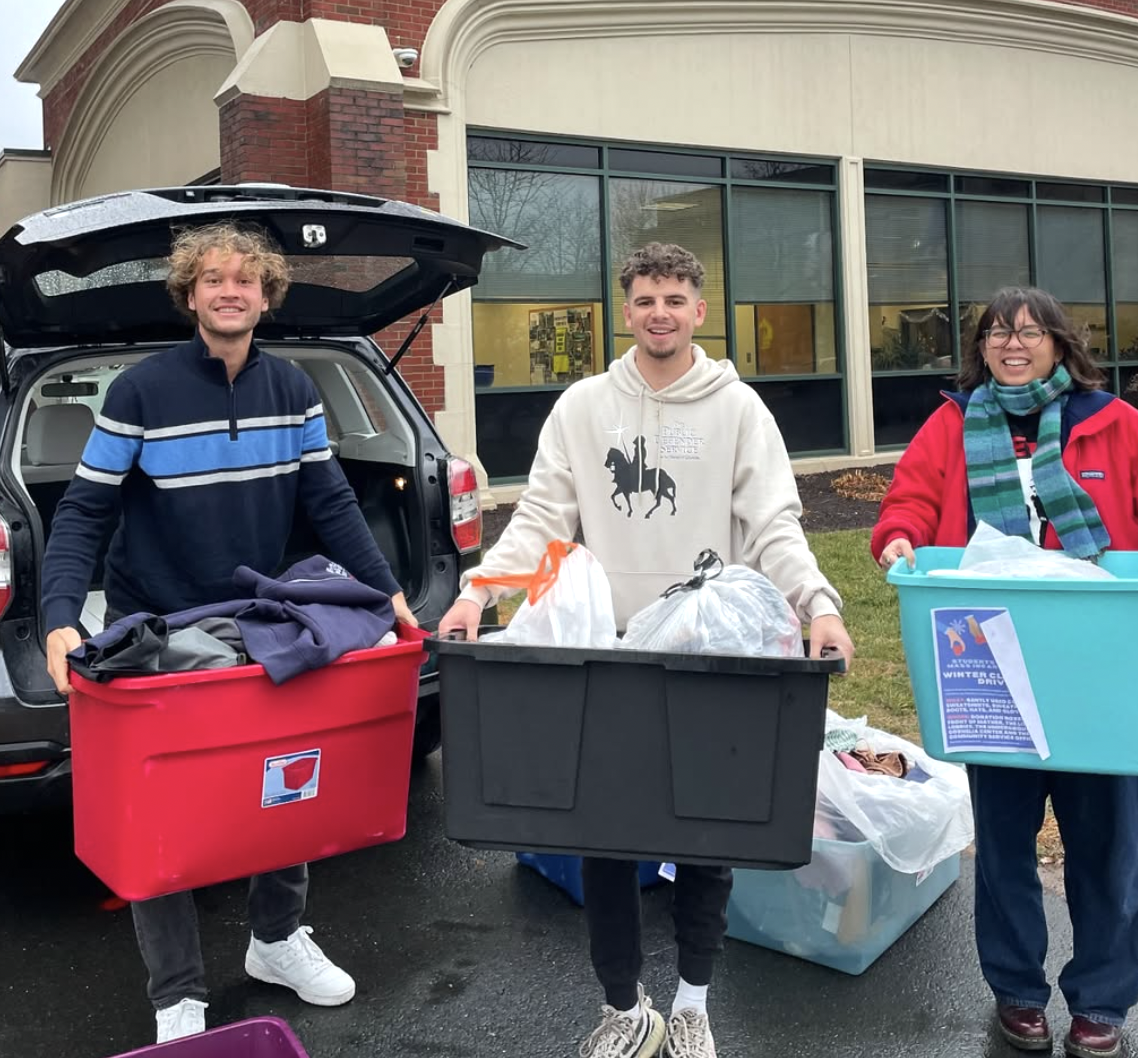Building a Movement: Students Against Mass Incarceration
During the Spring of 2022, Jake Loor ‘25, Reese San Diego ‘25, Luka de Faria e Castro ‘25, and I founded Students Against Mass Incarceration (SAMI) to address a critical gap at Trinity College, the gap between academic learning about mass incarceration and taking action. In the two years prior, we had the privilege of learning about mass incarceration in the classroom. We studied the racialized dimensions of “tough on crime” policies, the philosophical justifications of punishment, and alternative justice models that do not rely on retribution. Each of us, impassioned by what we learned in our classes, wanted to do something about the mass incarceration crisis that was afflicting not only our nation but our Hartford neighbors across the street. We created SAMI as a bridge for Trinity students who are passionate about resisting mass incarceration and focused on three primary branches of action: policy advocacy, political education, and direct aid. Each branch allows us to target mass incarceration from a different angle, ensuring that we not only challenge the system through policy change but also provide material support to those directly impacted by it.

Our policy advocacy team partners with local organizations to advance structural changes to reduce mass incarceration in Connecticut. This past year, we’ve held policy information sessions on Connecticut’s excessive and unjust parole and probation system in collaboration with the Katal Center, mobilized students to rally at the State Capitol to defend immigrant rights to healthcare, and most recently, wrote and advocated for legislation that would eliminate statutory fees associated with criminal proceedings and banning the imposition of costs by courts and prisons.
Our political education branch organizes community events to start conversations about the carceral system and build a collective consciousness about the racial, economic, and gender-based dimensions of mass incarceration. These campus dialogues range in topic and format, from panel discussions overviewing the violent effects of mass incarceration to Dinner and Dialogue events on the criminalization of substance use to documentaries and interactive workshops with community partners. Through these events with Trinity professors and student-led messaging, we strive to illuminate the fact that our neutral legal system structures mass punishment primarily based on race and class. We hope that by providing all members of our campus community with accessible and engaging educational programming, we can begin to shift the conversation around justice from a politics of punishment to a commitment to care and harm reduction.

Direct aid has also been a critical component of our work. Our direct aid team develops partnerships with local organizations to directly support individuals impacted by the carceral system and address systems of economic injustice and racial violence that underlie mass incarceration. As part of our direct aid work, we organize pardon workshops to support formerly incarcerated community members seeking to clear their records and restore their access to housing and employment, coordinate a yearly winter clothing drive for individuals in the Connecticut court system, regularly write letters of support to incarcerated youth across the country, coordinate volunteering for the Mercy House homeless shelter, and work with Food Not Bombs to bring and share meals with our neighbors in Bushnell Park each Sunday. Later this Spring, we will organize a Baking for Bond fundraiser to raise money for those held in pre-trial detention without a conviction because they cannot pay bail. We are currently selling shirts to raise funds for the same purpose.

In addition to our three branches of action, SAMI is committed to supporting other movements for justice, both on campus and in our broader community. This semester, SAMI has also volunteered with Hartford Deportation Defense to provide childcare for Know Your Rights workshops and member meetings. Most recently, SAMI co-hosted a town hall for students, faculty, and staff to share campus concerns and build support channels to make our community safer and more just.
The work to reverse mass incarceration — through policy advocacy, political education, and direct aid — is far from over. If you are interested in learning more about the mass incarceration crisis and how you can be involved in resisting it, you have a home in SAMI. As we look toward the future, I am excited to see how SAMI continues to fight for a world more grounded in care, committed to restoration, and impatient with injustice. This work belongs to all of us. I hope you will join SAMI in the fight.
The views and opinions expressed in this blog are those of the author and do not necessarily reflect the opinions or positions of CHER.
